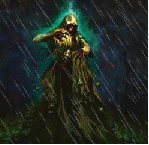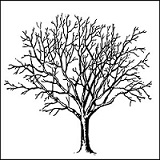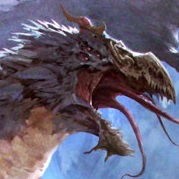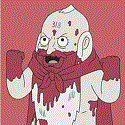|
Hi, I might be asking an incendiary question. I'm starting a new RPG group and I want to offer new World of Darkness as one of our play options. The thing is that I'm not familiar with anything that's recently gone on in the game line. I have a lot of nWoD era books, but I'm not familiar with Chronicles or the new editions of any of the game lines. I was just going to talk people through the basic ideas of Vampire/Mage/Werewolf/Hunter/Changeling/Demon/Promethean and see if any of those appeal, not dig into the splats too much. Is it worth buying and using the second edition rules instead? How much of my collection is generally compatible?
|
|
|
|

|
| # ? Jun 9, 2024 22:36 |
|
Arivia posted:Hi, I might be asking an incendiary question. I'm starting a new RPG group and I want to offer new World of Darkness as one of our play options. The thing is that I'm not familiar with anything that's recently gone on in the game line. I have a lot of nWoD era books, but I'm not familiar with Chronicles or the new editions of any of the game lines. I was just going to talk people through the basic ideas of Vampire/Mage/Werewolf/Hunter/Changeling/Demon/Promethean and see if any of those appeal, not dig into the splats too much. Is it worth buying and using the second edition rules instead? How much of my collection is generally compatible? In terms of fluff, most of the 1E books can still be referenced for plot and story ideas, with some merits and interactions capable of being used as-is or with some minor updating. The 2E cores and books since have benefited from a much clearer view of what each line is and its core themes, mostly because they're built upon a decade worth of 1E books and are further removed from the oWoD lines they were originally trying to play successor to. Also their mechanics are tighter. Yes, it's very much worth using the second edition rules.
|
|
|
|
Ironslave posted:In terms of fluff, most of the 1E books can still be referenced for plot and story ideas, with some merits and interactions capable of being used as-is or with some minor updating. The 2E cores and books since have benefited from a much clearer view of what each line is and its core themes, mostly because they're built upon a decade worth of 1E books and are further removed from the oWoD lines they were originally trying to play successor to. Also their mechanics are tighter. What changed mechanics wise that you like? In my recollection the nWoD rules were pretty great; Iím curious to find worthwhile reasons to buy the new edition, I donít want to buy a set of new books just for the hell of it.
|
|
|
|
Arivia posted:What changed mechanics wise that you like? In my recollection the nWoD rules were pretty great; Iím curious to find worthwhile reasons to buy the new edition, I donít want to buy a set of new books just for the hell of it. Part of that question involves what line you're asking about. One universal example would be combat, which was further simplified and increased the general utility of the various combat merits. The other would be the Condition/Tilt system, which is a way of both inflicting and keeping track of various physical, social, and mental circumstances for characters, and rewarding them for playing into them. If you want specific examples from the lines, going to need to ask which ones. They've all undergone some degree of change and refinement which often encourages playing to the line's themes better than in 1E.
|
|
|
|
I'm gonna go against the grain and say that nWoD 2 is at best a side-grade. It fixes some problems (XP cost are now flat, among others) but brings in a whole bunch of others (busted XP system, major power creep, way too many conditions to keep track and/or abuse, combat is back to rocket-tag, etc.) I also don't like some of the changes to Powers/Fluff but that's straigth up taste issues. For example, I really don't like the new Coils of the Dragon.
|
|
|
|
All of the lines have much-improved powers. Mage particularly, but they all make a very good effort clearing out dead wood. Vampire, for instance, gives some cool interactive bonuses to the physical Disciplines so they're not just +Strength or whatever. I certainly wouldn't describe the combat as unusually complex, but I'm kind of curious how anyone could say it's simpler in 2e than 1e.
|
|
|
|
MonsieurChoc posted:I'm gonna go against the grain and say that nWoD 2 is at best a side-grade. It fixes some problems (XP cost are now flat, among others) but brings in a whole bunch of others (busted XP system, major power creep, way too many conditions to keep track and/or abuse, combat is back to rocket-tag, etc.) This is my take as well. The 2E lines are by no means bad, and they do very well illustrating and building on the themes of the games they're redoing, but a lot of game mechanics changes are tradeoffs rather than refinements. If I didn't have or couldn't use a well-worn body of houserules by now, I'd probably choose to play 1E vampire and werewolf but 2E mage (and don't know the mechanics of the other games well enough to be able to offer good recommendations there). Whatever edition you use, the other one is going to be a good source for setting, story, and power ideas to loot.
|
|
|
|
That Old Tree posted:All of the lines have much-improved powers. Mage particularly, but they all make a very good effort clearing out dead wood. Vampire, for instance, gives some cool interactive bonuses to the physical Disciplines so they're not just +Strength or whatever. Let me guess, Save Point is gone? Iím the most familiar with Vampire and Mage, but I want to leave it up to the players which one grabs them. (Iím only including lines I find interesting, hence leaving out Geist/Mummy/Beast.)
|
|
|
|
Arivia posted:Let me guess, Save Point is gone? Iím the most familiar with Vampire and Mage, but I want to leave it up to the players which one grabs them. (Iím only including lines I find interesting, hence leaving out Geist/Mummy/Beast.) Mage is probably one of the most drastic departures. There are certainly callbacks, but the entire underlying structure of how spells work was rebuilt and everything works within a universalized, consistent framework (and is, frankly, organized much better). It can still be pretty complex, which might turn off new players, but that was pretty true of 1e as well and it all makes a lot more sense than that. Setting-wise, Mage also might be the biggest departure, as Big Things have been shuffled around, renamed, merged, etc. though this is somewhat a continuation of stuff that was happening to 1E near the end of its run. Universally, all of the 2E games are written to be more conducive to actually playing a game at a table. This and just being new, different editions comes with differences in writing style, which some people bounce off of, so you might look out for that. Personally, they grabbed me far better than any of the 1E stuff ever did. I'll also agree Conditions are kind of bad, and while (group) Beats are better than piecemeal individualized XP rewards I'm still not a fan of tying character advancement to the fundamentally random in-game progression of events. Something that makes all the core downsides bearable (to me) is that they're very easy to ignore. They're sort of attachments and expansions on 1E, so you can mostly just ignore Beats and award flat XP per session and there's very little additional houserule work you'll need to do to keep the game running.
|
|
|
|
Save Point?
|
|
|
|
One of the biggest tragedies of Conditions being stupid and annoying to track is that they're how huge chunks of WtF and GtS both function, and those games' 2es kick a whole bunch of rear end otherwise.
|
|
|
|
Crasical posted:Save Point? There was a 1e Free Council rote that literally created a JRPG-style save point for the group to rewind to if things went badly.
|
|
|
|
loving mages.
|
|
|
|
Arivia posted:There was a 1e Free Council rote that literally created a JRPG-style save point for the group to rewind to if things went badly. 2E actually goes much deeper into time travel stuff.
|
|
|
|
Arivia posted:There was a 1e Free Council rote that literally created a JRPG-style save point for the group to rewind to if things went badly. 1E spells were... weird. The corebook has its practices, but regularly bucks them in the name of "balance." Then, as the line went on, freelancers kept putting in increasingly-absurd spells which were often outside of any real considerations or outright missed the point; there was a Mind spell in what I think was the 1E Free Council book that let you cast a spell to never suffer a Wisdom check on the grounds that you shatter your sense of right, wrong, and equilibrium, so therefore you couldn't have done a sin! 2E still has balance consideration baked into spells, but they're mostly expressed in the new Reach system rather than determining what dot rating a spell is likely at. It's both more consistent, and gives STs and players more room for Creative Thaumaturgy.
|
|
|
|
Ironslave posted:1E spells were... weird. The corebook has its practices, but regularly bucks them in the name of "balance." Then, as the line went on, freelancers kept putting in increasingly-absurd spells which were often outside of any real considerations or outright missed the point; there was a Mind spell in what I think was the 1E Free Council book that let you cast a spell to never suffer a Wisdom check on the grounds that you shatter your sense of right, wrong, and equilibrium, so therefore you couldn't have done a sin! Wouldn't just the act of casting this spell shatter your Wisdom?
|
|
|
|
There's stil inuring spells, for keeping Wisdom high while doing murders.
|
|
|
|
ZeroCount posted:Wouldn't just the act of casting this spell shatter your Wisdom? Like I said, some outright missed the point.
|
|
|
|
If I'm remembering right, that spell was a Wisdom sin. It was just not as bad a sin as the actual acts it inured against.
|
|
|
|
Mendrian posted:If I'm remembering right, that spell was a Wisdom sin. It was not a Wisdom sin. It's in Tome of the Mysteries, went and looked it up. It let you declare specific actions you were immune to Wisdom checks from, and at Mastery apply it for Morality sins on other subjects. I think it is very stupid. Meanwhile, I love Inuring, because it really is sort of the ascendant expression of a Mage trying to dodge consequences and reaping other consequences for it.
|
|
|
|
MonsieurChoc posted:I'm gonna go against the grain and say that nWoD 2 is at best a side-grade. It fixes some problems (XP cost are now flat, among others) but brings in a whole bunch of others (busted XP system, major power creep, way too many conditions to keep track and/or abuse, combat is back to rocket-tag, etc.) I would agree. There are a lot of good new things in some of the games, but there are also a fair number of bad dumb thing in them, too. It would take a mad genius like Loomer, but a hybrid version of 1e and 2e would probably be amazing for some of the systems. Changeling is the one that comes to mind for me.
|
|
|
|
Geist backer PDFs are getting sent out today. Earlier than I expected too. Looking forward to reading it and seeing what's changed.
|
|
|
|
Iíll be honest, Iím reading through the first chapters and I donít think theyíre quite doing the work of making the wider tonal palette theyíre going for gel with the Goth As gently caress core concept. Suggested archetypes for our crusading ghost activist PCs include ďslacker dude who died before he could take college seriously and please his parentsĒ and ďChef who choked on sausage and canít accept the collapse of her family fortuneĒ and even ďguy who died before the end of his favorite TV show and comes back from the dead because he couldnít stand it being canceledĒ. I appreciate that the developers might have wanted to steer away from Brandon Lee brooding leather jacket dudes, but these suggestions sort of leave me at a loss considering the utter seriousness of the game concept. Why would I want to play a game in which one of the PCs is a metaphysically compelled TV forum shitposter?
|
|
|
|
I mean, that's the whole reason is come back from death?
|
|
|
|
|
I mean itís not like any of us posting here have what youíd call a living soul Mainly itís just this tonal mishmash thatís getting to me. Part of it is that they seem to want to go for posi vibes (stating up front that this is a game about Hope) but still be part and parcel of CoD, which doesnít seem to be working - I donít know why this isnít its own IP with its own horror-free foundation, like Scion. On the one hand youíve got your undead tv stans and people who returned from death to defend their hot dog eating contest records, but youíve also got actresses who want the spotlight and will murder rivals to get it, or transplant surgeons who come back to harvest organs from the living, willing and unwilling. All of these are suggested PC examples from one game. Just cut out the angst and moral murk entirely if you want to make a game that is at bottom about benevolent revolutionaries helping people have their ďgo into the lightĒ moment. Maybe it pulls itself together down the line but as of now itís just really messy.
|
|
|
|
Conceit of most--if not all--of the games coming out in the ChroD line is that you're a monster, but your monstrousness comes from the way you fail or justify failing at being a decent person, with various levels of mechanics and setting conceits incentivizing you to break from the straight-and-narrow. I don't have the new PDF, just the advance they sent out to backers, so I don't know what's changed as since but: Geist doesn't really have that, and it does stand as the odd man out. But the horror in it isn't in being one of the Bound, or even in tempting you to be an awful person (anymore than we're tempted in high-stakes situations). It's in the size of the system you find yourself against, and the sheer, incomprehensible amount of misery it puts out every second of its existence, either directly or indirectly. The Underworld is eating people. Ghosts are eating each other. People are selling themselves into strange and warping Dead Dominions so they don't suffer a fate worse than death. There is a towering monument to abuse, predation, misery, and despair, and every person in existence has fallen, is falling, and will fall into it. Dear God, do something. In light of that, I'm really, really grateful it's been upfront it's about grabbing what hope you can, and direct in that the revolution is possible, even if it may not look it from the ground level. In a game about death, I am very happy the tone is "it can be better" rather than leaving it as an open-ended question.
|
|
|
|
See thatís just Demon with a less interesting / complicated / daunting antagonist, and less interesting / complicated / daunting protagonists, to boot. In general there seems to be a lot of stuff from other lines with their complicated bits sanded away. Eg the Furies are the Forsaken without the Forsakenís fatal (loving) flaws: shortsightedness and being hammers in world full of not-nails. Iím curious to see what compels Sin Eaters to act in the way they do, and I hope itís not just ďgeneral benevolenceĒ. It doesnít even need to be the questionable morass of Vampire or Demon. Woofs donít just fight the natural state of the world, there are things that come after them and their territory, and what they have to do to maintain that territory isnít always a mutual good.
|
|
|
|
The thingís chock full of terms and concepts youíll find in any transformative justice manual and all thatís okay but itís not to my taste in horror-bound elf games, ultimately. Itís not a genre I come to for a general sense of optimism. More to the point I donít know what the point is of having monstrous antagonists like Reapers or Eaters of the Dead when your most militant faction are just really, really committed to having hard talks about responsibility. They just seem to confuse things, theyíre distractions that push against the grain of the game, which like transformative justice writ large, is about the fungibility of conflict and how to see past it. Basic Chunnel fucked around with this message at 02:45 on Apr 17, 2019 |
|
|
Basic Chunnel posted:The thingís chock full of terms and concepts youíll find in any transformative justice manual and all thatís okay but itís not to my taste in horror-bound elf games, ultimately. Itís not a genre I come to for a general sense of optimism.
|
|
|
|
|
It's not Demon, though, unless you're doing the most broad read possible. The God-Machine is an ambivalent, inscrutable entity which is out to specifically hunt you (if you're a Demon), which can--depending on story and whether or not you're playing Demon--also function as a metaphor for systemic oppression, overcomplicated bureaucracy, and various other bits. The Underworld is a giant world build on systemic oppression and how it ripples outwards into the land of the living, and how guts-churningly monstrous what it is, does, and how it makes "life" for people. And yeah, last I checked it is general benevolence. You're the Sin-Eaters, you're the Good Guys. If you weren't, you'd be playing... I don't remember the name of the awful Bound, but them, and I'm sure they'll be an option later down the line. It's part of the general buy-in to the game, that you want to make things better for whatever your chosen motives are (even if that is "well ghosts who move on don't need their stuff anymore").
|
|
|
|
For motivation my assumption would always be that the PCs are, if not unique, kind of weird for being altruisticly focused. My assumption is most Geists and Krewes are focused on exploiting ghosts to some degree or another. The PCs Krewe is different, which is why the story is about them. As far as horror goes it is less personal horror focused than vampire or Woof certainly, but I prefer that. Honestly I don't think I have it in me to play or GM Vampire these days, I don't really want to indulge in monstrosity so much. The horror of Geist is more the horror of running a Mortals game. You are in a very dangerous and unfair world and you know enough to get hurt but for some reason you are going to keep on going out there.
|
|
|
neaden posted:For motivation my assumption would always be that the PCs are, if not unique, kind of weird for being altruisticly focused. My assumption is most Geists and Krewes are focused on exploiting ghosts to some degree or another. The PCs Krewe is different, which is why the story is about them.
|
|
|
|
|
neaden posted:For motivation my assumption would always be that the PCs are, if not unique, kind of weird for being altruisticly focused. My assumption is most Geists and Krewes are focused on exploiting ghosts to some degree or another. The PCs Krewe is different, which is why the story is about them. I feel the same. I enjoy the other lines, but a breath of air saying that things may be dark and awful, but there's still ways to find hope or that things can be better is something I think benefits the brand as a whole. There's just a point where another game saying things are probably bad, and then trying to get you to be bad would be underwhelming and exhausting, especially with the state of the world. But that's a personal feeling, and despite it I am still looking forward to Deviant. I don't know as the game assumes your goals or motives are altruistic, but it does assume what you do is help ghosts deal with their situations and move on, either in a personal or broad sense. The part-time exorcist who's getting paid to help ghosts go into the light, the occult scholar more interested in gathering information on the secret history of how the Underworld came to be so terrible, and the man fighting to free a river town from a corrupt baron and distribute essence more equitably are all Sin-Eaters.
|
|
|
|
Ironslave posted:It's not Demon, though, unless you're doing the most broad read possible. The God-Machine is an ambivalent, inscrutable entity which is out to specifically hunt you (if you're a Demon), which can--depending on story and whether or not you're playing Demon--also function as a metaphor for systemic oppression, overcomplicated bureaucracy, and various other bits. The Underworld is a giant world build on systemic oppression and how it ripples outwards into the land of the living, and how guts-churningly monstrous what it is, does, and how it makes "life" for people. Whatís concerning me about Geist (which incidentally, also concerns me about restorative justice vs. the transformative sort, but this is 100% not the place to dig into it) is that thus far it doesnít really seem to see systems as fundamentally both composed of people and also outside of them, which is really crucial to taking seriously how incredibly resilient they are. It is just Demon minus doubt, or plus faith if you will; The political metaphor of the God Machine is that it is deep in every facet of life, to the extent that the more you consider whatís necessary to being fundamentally rid of it, the more the change you need becomes violent and traumatic and the more the future becomes uncertain. Including the possibility that your victories might be pyrrhic. Demon turns on the uncertainty and notions of complicity and Geist by contrast does the precise opposite. The scenario is the same without the uncertainty, both of the possibility of being rid of evil and the question of whether corruption and complicity present as moral terrors (the outlook of Geist sort of demands that they not be). The God Machine is an infection, the Underworld is a misunderstanding, or an untended garden. So there is a real dissonance between Geist and the rest of the CoD - Iíd go so far as to say it presents more dissonance, when placed in the same world as the other lines, than Beast ever did in its subtext, or Mage did in its cosmological theory. Itís outlook is fundamentally different. Basic Chunnel fucked around with this message at 03:15 on Apr 17, 2019 |
|
|
|
Basic Chunnel posted:All of that is Demon. Demon is never not about a giant multifarious system of pain and exploitation that is irreducibly complex and committed above all else to protecting itself. Whatever political metaphors you read into either line, there's still a broad difference in terms of tone, stakes, and gameplay, and what you as either a Sin-Eater or Demon are doing. The God-Machine in Demon is in how it relates to Demons, with personal and frightening stakes that encourage them to use people like burner identities to try and seek safety, hopefully in service of one day creating a space where you're free of it. The Underworld in Geist is a massive, inescapable plane of existence that drives the whole of undead society to horrifying and frightening extremes, and you have the potential to do something about it with one foot in both worlds, and that your revolution isn't hypothetical, it's an assumption of the line itself. It's weird to say they're the same when nothing about how they're used or what they mean to a PC is alike. I can see how you might feel there's dissonance between it and the rest of the Chrod; I felt it for a while after reading the pledge chapters. But I don't think being a departure from the norm inherently makes it incompatible. Or that Mage is dissonant with the rest of the ChroD (what?), but that's another can of worms. Edit: It feels to me like saying Promethean and Changeling are the same game, a thing I have heard that still makes no sense on my understanding of both lines. Ironslave fucked around with this message at 03:32 on Apr 17, 2019 |
|
|
|
Gotta say this first look seems to be equally misguided as SIGMATA in its conception of the protagonists as feasible opponents against monstrous systemic oppression, and if anything that odious achievement deserves some kind of recognition.
|
|
|
|
Basic Chunnel posted:Iím curious to see what compels Sin Eaters to act in the way they do This is where Geist 2e fell short. Geist 2e is no Beast, no trainwreck of colliding good intentions to produce a loathsome project. And it's probably still better than Geist 1e, which suffered from a serious diffusion of theme and point. But it hasn't solved that diffusion. Part of it wants to run in the direction of affirmative justice and empowerment. That's not really a horror story but I don't really demand a central horror focus, myself, if the central focus still makes for a good game. But justice isn't a central focus for Geist. The Reapers and Eaters, who are pretty good antagonists individually, try to hook into the metaphor of oppressive systems but don't have the cohesion of Demon's angels into the greater workings. More importantly, large swaths of the game go in different directions. Resolving ghostly Anchors and your Burden and Remembrance are an attempt by the game to make for more personal stories, like Wraith's Passions and Fetters, but there's not much meat on the bone. Synergy, your connection to your Geist, has changed from an Integrity trait to a power stat. It retains something resembling Integrity's breaking points, but they are purely temporary, and the sample triggers given don't characterize them as a conflict between the interests of a Bound human and an inhuman, otherworldly partner geist, but more as character flaws, weaknesses, vulnerabilities. That was the big missed opportunity of Geist 1e, the creation of this intriguing concept of fusing with something that was not quite a ghost anymore, that had become archetypal and had inhuman and often inimical needs to manage, in a game that did not actually have any content about having to manage them. Geist 2e's Synergy is still not that interesting suggested tug-of-war between needs and effort to forge a consensus. Not only are the example triggers generally passive misfortunes instead of active manifestations of the geist's will, but most of them are things the Bound human wants to avoid happening anyway. Moreover, Synergy typically only goes up. It's a power stat, not an Integrity trait: you don't manage it by reconciling your geist's needs with your own and seeking a healthy balance point. You focus your Boundness and as you get to be a bigger Bound, it gives you more agency over your geist in your relationship. Its triggers become less demanding and you gain more say in what happens when they trip. 2e Synergy, like 1e Synergy, still isn't actually about an accord with your geist: it's just your power over it, which makes the existence of a villainous counterpart to Synergy fall flat. There are situations that can threaten your Synergy, but they don't relate to striking an accord. Dying threatens your Synergy: your power stat weakens, you lose some Boundness. Making Mementos saps your Synergy: it's a cost you pay out of your power stat to put Boundness in an object instead of in you. Cannibalizing a ghost for Essence or drinking from the Underworld's deathly rivers threatens your Synergy. Ectophagia, which is supposed to be sinful temptation for power, ends up being mostly a bum deal, a large sum of Plasm now for a setback in your overall Boundness. Drinking from a river at least boosts your geist's Rank early, but the game punishes you for a whole three dots of Synergy, when there are Synergy-safe ways to advance Rank anyway. Krewes are still a distraction, with too much mechanical focus and detail, suggesting a thematic importance that doesn't hold out. Packs in Werewolf 2e already do largely the same things better: a focus on community and solidarity, the need to hunt to give structure to what they do and why. I'm satisfied to have what I paid for (the PDF level), but I'm glad I didn't pay more. Geist is still what it was in 1e: unfulfilled potential and a lack of focus to answer the question "what is a Sin-Eaters game about doing?" beyond the one-word answer "ghosts." I will admit I remain surprised by how many people wait to read the book at all until the post-layout PDF. The entire text of the book was made available during the Kickstarter campaign, in pretty much the form it's in here. Onyx Path played pretty fair with this one. I took awhile to chew on it after I read it and come to where I am now, but I don't feel like I've been given any kind of unwelcome surprise.
|
|
|
|
lol Storytellers Vault now has a "definitive" Style Guide for WoD that's just a combination of all the style guides for the separate lines which, okay, whatever, but it contains incredibly high-resolution images that weren't downsampled so it's a 257MB PDF. EDIT: Just the default "optimize PDF" settings in Acrobat got it down to 80MB. EDIT: Also nested zip files are the worst and this is a war crime. EDIT: There's another definitive style guide that combines WoD, CoD and Exalted into one PDF so that it's ~300MB. Exalted is sandwiched in the middle for I guess publication order reasons? This is amazing. It's still just a single PDF, but it comes in a zip file for some reason. EDIT: Oh my loving godddddd there are two separate instances of art packs being duplicated, not within a single product, but listed as separate products, one of which is 1GB. That Old Tree fucked around with this message at 09:56 on Apr 17, 2019 |
|
|
|
More ratios and demographics. All, unless otherwise noted, on a whole supernatural community basis and exclude wraiths for obvious reasons. Belgium: 1:184,800. Belize: 1:34,000 Botswana: 1:840,000 Brazil: 1:628,000 Bulgaria: 1:109,700 Burma: 1:355,300 Burundi: 1:1,062,333 Cameroon: 1:7,500,000 Cambodia: 1:12,100,000 Canada: 1:32,000. Canada also has 2 fera to every vampire and a very high proportionate changeling population at around 11% of the total. Central African Republic: 1:3,700,200 Chile: 1:3,792,500 Colombia: 1:5,050,000 Ecuador: 1:2,431,321 East Timor: 1:184,640 Djibouti 1:102,512 Egypt: 1:145,400 England: 1:225,400 Finland: 1:304,400 City wise, Paris is overpopulated. 1:10,680. Vampires alone are at 1:12,962.
|
|
|
|

|
| # ? Jun 9, 2024 22:36 |
|
I Am Just a Box posted:I'm satisfied to have what I paid for (the PDF level), but I'm glad I didn't pay more. Geist is still what it was in 1e: unfulfilled potential and a lack of focus to answer the question "what is a Sin-Eaters game about doing?" beyond the one-word answer "ghosts." I just can't understand how you can have this take and be a fan of WoD games since you can say they exact thing about any of them. Or indeed most open ended RPGs. I would say Geist is better since an element of character creation is deciding your personal motivation as a burden and your group motivation as a Krewe type. You can be focused on something mortal related like gaining fame, dealing with ghost politics in the living world, focused on helping individual ghosts move on, exploring the underworld, collecting and dealing with Mementos, or establishing a power base and dealing with other sin-eaters. As to what Geist specifically brings to the table I'd say it's main strength is opposite demon in that while Demon is all about secrets and lies Geists are the least limited by a Masquerade. They have the largest population of in the know NPCs with ghosts, mediums, necromancer's, etc. They also can be more open since claiming you can talk to ghosts doesn't raise as many eyebrows as saying you are a biomechanical angel on the run. This person focus applies to the antagonists as well, necromancer's, other Geists, and even Eaters of the Dead are all understandable and have human motives as opposed the the GMs ineffable inhuman motives.
|
|
|




























